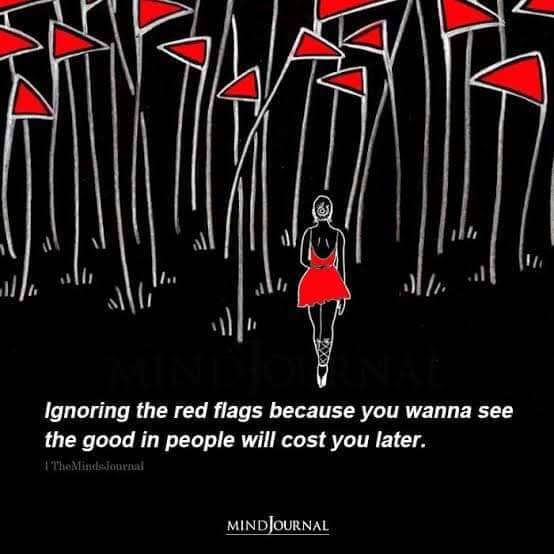
I have talked about “red flag” behaviour in previous relationships in previous blog posts. I’ve discussed how sometimes it was subtle to begin with, then the gaslighting, lying, emotional manipulation and controlling behavior increased over time and how you always end up second guessing yourself.
I have gained a lot of self-awareness from these previous toxic connections and learned how to recognize red flags, ensure that I set clear boundaries and prioritize self-care.
Because I have experienced this type of behaviour and I know for sure many people are dealing with toxic relationships that I will share my personal experiences with you all and shine a light on how to identify and deal with “red flag” behavior.
Relationships are not always smooth sailing. While we often find ourselves basking in the honeymoon phase, it’s crucial to remain vigilant for signs of potential trouble. Red flag behaviors in relationships can be elusive, sometimes only surfacing later down the track. As someone who has navigated the complexities of relationships, I understand the importance of recognizing these red flags and taking decisive action to ensure your well-being.
Identifying Red Flag Behavior:
It’s not uncommon for red flags to remain hidden in the initial stages of a relationship. As excitement and infatuation take center stage, we may overlook subtle signs of concerning behavior. It’s vital to cultivate self-awareness and pay attention to changes in your partner’s conduct. Common red flags include:
- Controlling Behavior: If your partner exhibits a need for control over various aspects of your life, it may be a cause for concern. This could manifest in decisions both big and small, from what you wear to who you spend time with.
- Isolation Tactics: Be wary if your partner actively discourages you from spending time with friends and family. Healthy relationships encourage independence and personal growth, rather than isolation.
- Lack of Communication: Open and honest communication is the foundation of any successful relationship. If your partner consistently avoids discussing important matters or becomes defensive when approached, it’s a red flag.
- Manipulative Tactics: Manipulation can take many forms, from guilt-tripping to gaslighting. If you find yourself questioning your own reality or feeling emotionally drained, it’s crucial to address these manipulative behaviors.
Responding to Red Flags
When red flags appear on the horizon, it’s essential to respond proactively. Ignoring or rationalizing concerning behavior can lead to more significant challenges in the future. Here are some steps to consider:
- Trust Your Instincts: Your intuition is a powerful guide. If something doesn’t feel right, trust your instincts. Acknowledge your feelings and take them seriously.
- Open Communication: Share your concerns with your partner in a calm and assertive manner. Healthy relationships thrive on communication, and addressing issues early can prevent escalation.
- Establish Boundaries: Clearly define your boundaries and communicate them to your partner. If these boundaries are disrespected, it may be a sign that the relationship is not built on mutual respect.
- Seek Support: Don’t hesitate to reach out to trusted friends and family. Discussing your concerns with those who care about you can provide valuable perspectives and emotional support.
Prioritizing Self-Love and Safety
Above all, remember that you are worthy of love and respect. It’s essential to prioritize your well-being and recognize when a relationship may not be serving your best interests. Here are some key considerations:
- Self-Reflection: Take time to reflect on your needs, values, and goals. A healthy relationship should contribute positively to your life and personal growth.
- Know Your Worth: Understand that you deserve love and kindness from a partner. Settling for less than you deserve can lead to long-term emotional harm.
- Seek Professional Help if Needed: If red flags persist and your safety is at risk, consider seeking professional help. Therapists, counselors, and support groups can provide guidance and assistance.
Navigating red flag behaviors in relationships requires courage, self-awareness, and a commitment to personal well-being. Drawing from personal experience, I encourage everyone to prioritize self-love, trust their instincts, and seek support when needed. Remember, you deserve a relationship built on mutual respect, kindness, and understanding.
imagecredit:mindjournal
communicationcontrolling behavioremotional manipulationgaslightingred flagred flag behaviorred flag relationshipsself careself-lovetoxic relationships

